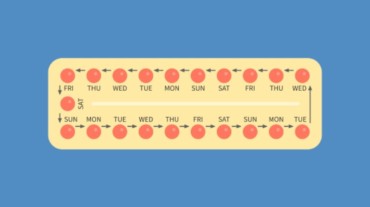
For the first time in India’s history, the increased use of contraception has resulted in a decrease in Total Fertility Rate (TFR) to below replacement level. According to the most recent National Family Health Survey (NFHS), the use of modern contraceptives for family planning has increased by 8.7 percent – from 47.8 percent to 56.5 percent – since the last NFHS survey in 2015-16. Although this is welcome news because it indicates that India’s population growth is finally slowing, it has sparked a debate about the relationship between birth control and
infertility.
The World Health Organization (WHO) states that infertility is a disorder of the male or female reproductive system described by the failure to achieve a pregnancy after 12 months or more of frequent unprotected sexual intercourse. It affects millions of people and couples worldwide, especially in India.
Regular usage of birth control, on the other hand, has been shown to have no effect on fertility.
Condoms, tablets, vaginal rings, contraceptive injections, and intrauterine devices are some of the most commonly used birth control methods in India. All these methods of conception prevention are reversible. A woman who wishes to become pregnant might simply stop using them and begin the pregnancy process.

It is necessary to make some lifestyle changes while discontinuing birth control measures in order to become pregnant. Here’s some advice:
According to studies, 83 percent of people who stopped using contraceptive techniques became pregnant within the first year. It was also discovered that the length of contraceptive use had no bearing on the time it took to conceive. So, if you have been on birth control for a long time, you probably do not have anything to be concerned about getting pregnant.

If you have not become pregnant after a year of not using birth control, you may be suffering from infertility. In such a case, it is critical to see a gynecologist. The doctor can determine the cause of infertility and begin treatment.
Infertility can be treated with the help of medication (to initiate the ovulation process), surgical procedures to correct the fallopian tubes, or assisted conception methods such as in vitro fertilisation (IVF) or intrauterine insemination (IUI).